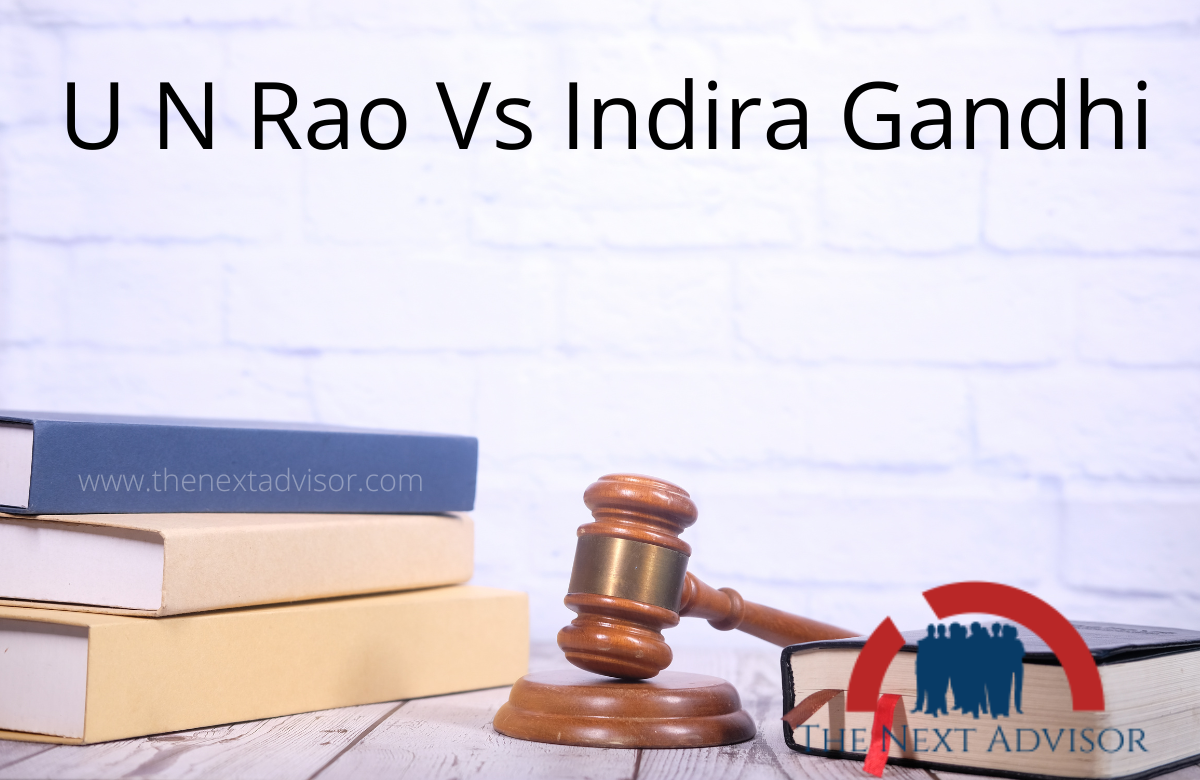Facts of U N Rao Vs Indira Gandhi Case
Disputes arose between Indira Gandhi, the then Prime Minister, and Morarji Desai in 1969 and 1970. Indira Gandhi advised the President to dissolve the Lok Sabha and requested Indira Gandhi to continue as the Prime Minister.
After this petitioner U.N. Rao, an advocate of Madras by writ of quo warranto prayed before Madras High Court for a declaration that Prime Minister had no constitutional authority to hold office and to function as Prime Minister.
Madras High Court dismissed his petition. Then he appeared before the Supreme Court challenging Mrs. Indira Gandhi’s continuance as the Prime Minister after the dissolution of the Lok Sabha.
Issue of the U N Rao Vs Indira Gandhi case
Can the Council of Ministers continue to function after the dissolution of the Legislature or the resignation of a Council of Ministers?
The decision of U N Rao Vs Indira Gandhi case
The Supreme Court rejected the argument of the petitioner and held that the convention and concept of Collective responsibility have been adopted from English Law. In England, the convention is that even though the Parliament dissolved, the Prime Minister and his cabinet continue to exist as ‘caretakers’ or else the peace and administration of the country would be disturbed without any government.
It further held that the Cabinet’s Collective responsibility to the House existed only when the House was not dissolved or prorogued. “Article 74(1) is mandatory. It says there shall be a Council of Ministers with the Prime Minister at the head to aid and advise the President in the exercise of his functions.”
The Supreme Court further said that ” we are unable to argue with the appellant that in the context the word ‘ shall ‘ should be read as ‘ may ‘ . Article 52 is mandatory . In other words, ” there shall be a President of India “. So is Article 74 ( 1 ). The Constituent Assembly did not choose the Presidential System of Government. Under Article 75 ( 2 ), the Ministers hold office during the pleasure of the President.
The decision of the case
Article 74(1) is mandatory and therefore, the President cannot exercise the executive power without the aid and advice of the Council of Ministers. We must harmonies the provisions of Article 75(3) with Articles 74(1) and 75(2). Article 75(3) brings into existence what is usually called responsible government.
The ratio of the Case
A council of Ministers must always exit to advise the President or Governor ( even after the dissolution of the Legislature or resignation of a Council of Ministers ). Hence, the existing ministry may continue in the office until its successor assumes charge of the office.

























